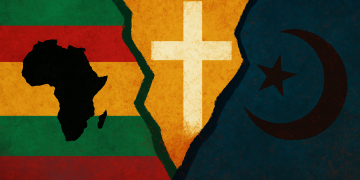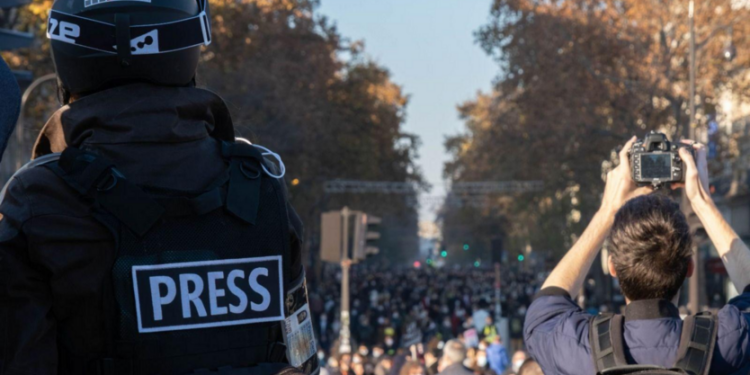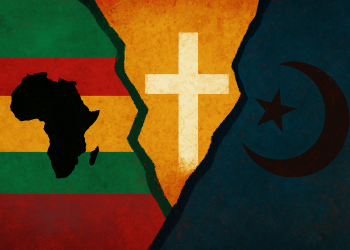With the development of technology, traditional media has been replaced with new media tools in the Western countries. In the less developed countries, however, the traditional media is still very powerful and influential in society and politics. In this analysis, the societal role of United States (US), European and Arab media will be analysed comparatively.
When we look at the Western media, we see that its language no longer presents the news only, but analyses, makes sense of, and digs into facts. This style, which is an important tradition of the American media from past to present, has also adapted itself to the digitalised media. Although the American media’s biased stance against President Trump that rooted from the ruling style of the former president was shocking for US citizens and casted a shadow on the American liberal dream, yet its coverage of other news was not affected and did not show any specific bias.
US Media
The US press, which has managed to survive against the new media, has transformed traditional journalism into digital. The New York Times, one of the most respected newspapers in the country, was the first media organisation to take a serious step in this regard. The 172-year-old newspaper started digital publishing in 2014 with around 700,000 subscribers, and today has 5.6 million online subscribers. The monthly subscription fee of USD 2 brings the newspaper a total of USD 11.2 million every month. The Wall Street Journal, the second best-selling newspaper in the country, also prioritises mobile phones and tablet versions over print publishing. The newspaper has 3.2 million subscribers and its monthly online revenue averages $3.2 million. The Washington Post, the third largest newspaper in the American media, has also increased its number of subscribers to over 3 million after entering digital publishing. The average monthly subscription fee of one dollar brings the newspaper a minimum of 3 million dollars in revenue each month.1
While this situation is certainly changing the newspaper reading culture of the American public, it also encourages media organisations in the country to rapidly digitalise. What is important is where newspapers stand politically. The Trump era, which was different from usual presidents and discourses, led to serious shifts and changes in the fabric of the American media. In particular, the country’s major newspapers and most influential television channels lost their impartiality and intensely broadcast opposition to overthrow Trump. Trump’s defining CNN as “fake news” became the symbolic side of this war. CNN and other newspapers constantly reported against Trump and had an impact on the voting patterns in the elections. The New York Times, which traditionally supports the Democrats, justified the rhetoric in this period and openly opposed Trump. In 2017, Trump targeted the media, directly targeting The New York Times, CNN and CNBC in a post on Twitter, saying, “These and many more fake media are the enemies of the American people, not me”.[1] On 17 December 2021, in a podcast by Israeli journalist Barak Ravid, Trump said that evangelical Christians love Israel more than Jews living in the US, and then stated the following: ” The New York Times hates Israel, hates them. And they’re Jewish people that run The New York Times — I mean, the Sulzberger family.” [2]
European Media
When the European media is examined, it can be said that the European media entered the digitalisation process later than the US. The Sun, the best-selling newspaper in the UK has been losing its print customers in recent years and is turning towards digital publishing. The newspaper, which sold an average of 7 million copies 7 years ago, now sells 1.2 million printed copies only.[3] Among the European Union (EU) countries, Germany is the country that sells 12.3 million newspapers daily. It is seen that the German people have not immediately abandoned the newspaper reading culture. On the other hand, a shift to digital publication has also been noticed in the media.
In France, 12 million newspapers are printed every day. When we look at the content of the newspapers, it is seen that local content and internal issues of the European Union are covered in detail. At the beginning of 2020, although Covid 19 news were frequently covered, it is seen that Le Monde, the main newspaper, prioritised internal and foreign affairs of Libya, Russia, and Turkiye. When we analyse the European press, the BBC (British Broadcasting Corporation) appears as the mos[4]t significant media organisation. The BBC is one of the oldest broadcasting organisations in the world, financed directly with the royal patronage and taxes on television licences. Its chairman is appointed by the royal family and is accountable to the British parliament. The BBC has begun to incorporate elements of new media into its traditional television broadcasting in the shadow of the British Crown (England and Northern Ireland). The organisation’s channels and radio stations are not targeted exclusively at the British and Irish audiences, with a greater emphasis on overseas broadcasts. It broadcasts in over thirty languages. As with other European channels, the BBC also makes a great effort to popularise LGBTI+ through the propaganda of individual freedoms. While this propaganda is continued in all broadcast languages, a few stories are consciously released every month. This is also seen intensely in the BBC’s Turkish broadcasts.[5] In addition, publications targeting the conservatism of the society are frequently broadcasted.
European channels have a significant influence on the Arab world. The BBC, France24 and DW Arabic try to direct both the political and social mobilisations in the Arab world. It was observed that the BBC clearly participated in the anti-Ikhwan (Muslim Brotherhood) media activities launched in Egypt during the presidency of Mohamed Morsi. On 5 July 2012, BBC’s news report “Will the Muslim Brotherhood impose harsh rules on tourists?” was an example of such telecast.[6] The BBC Arabic channel, which has 8.4 million Twitter followers, although not as blunt as other channels, broadcasts programmes that trigger social change. France24 and DW Arabic channels also use a language that encourages and normalises homosexuality and considers opposition to it as abnormal. On the other hand, Russia Today Arabic television news channel, which is owned by Russians to be influential in the Arab world, broadcasts with the aim of increasing sympathy for the Moscow administration and gaining political power. The channel frequently covers Putin’s speeches, the strength of the Russian economy and special programmes on the effectiveness of the Russian military industry. Al-Hurra television, which was established in Atlanta during the days of the American invasion of Iraq, has also changed its broadcasting from the initial legitimisation of the invasion of Iraq to the global influence of the White House administration.
Arab Media
The Arab media has embraced the Aljezera channel as a model. The channel, which suddenly neutralised the monophonic state televisions of countries ruled by dictators for 20-30 years and infiltrated into homes via satellites, has undoubtedly been the locomotive force behind the Arab revolution. Every dictator about to be overthrown openly made statements targeting Aljazeera. Following the coup d’état in Egypt on 3 July 2013, Aljazeera reporters were arrested and imprisoned for months. The Aljazeera office in Tahrir Square was raided and burnt by the coup supporters. Eleven years after the Arab Spring, new TV channels and newspapers have been established in many countries. When we analyse these, we see the following:
- The media that emerged after the Arab Spring, although technically professional in appearance, has turned into an effective political element for the protection of regimes.
- The monophonic broadcasting, which used to be carried out by state TV channels, now propagandises the regimes under the guise of polyphony. Egyptian media can be a striking example. In 2012, the direction of the street movements against Mohamed Morsi, the first democratically elected President of Egypt, was determined by the media, which appeared to be independent but was influenced by the Egyptian elites and the deep state structure. In November 2012, all newspapers except Al-Ahram and Al-Jumhuriya, which were owned by the state, stopped their publications for a day and came out the next day with the headline “Red card for Morsi” to increase the tension in the country and to target Morsi. Televisions broadcast intensely against Morsi. Today, the same TV channels and newspapers are working with all their might to ensure the survival of the current regimes. Their main topics include propaganda against Ikhwan and the construction of a secular society.
- Considering its strong influence in the Arab world, the Dubai-based Al-Arabiya channel is also an important media organisation. In contrast to Aljazeera, Al-Arabiya channel broadcasts on issues that are not supported by the people of the region, such as the preservation of the status quo, the continuation of the Sisi government in Egypt, and the steps towards normalisation with Israel. While Aljazeera defends freedoms, Al Arabiya provides serious media support to oppressive regimes. Here, it can be said that these two channels, which are most watched by the Arabs, focus two different groups of people. While the average Arab citizen watching Aljazeera has great sympathy for Turkiye, those who receive information from Al-Arabiya’s broadcasts have negative feelings towards it.
As a result, in recent years, it has been observed that the heavy attacks against the Turkish axis, especially in the Gulf media such as Al Arabiya and SKY Arabic channels, are aimed at influencing their local public. After Trump, it is seen that the cards have been reshuffled in the region and a more moderate period will begin instead of clashing axes. On the other hand, traditional media, and especially newspapers, will still be influential in the Arab region.
2 See also: https://money.cnn.com/2017/02/24/media/trump-media-cpac/
3 See also: https://www.businessinsider.com/trump-jewish-people-no-longer-love-israel-and-run-new-york-times-2021-12
4 See also: https://www.statista.com/statistics/290086/newspapers-ranked-by-penetration-in-the-united-kingdom/
5 See also: https://www.bbc.com/turkce/topics/cxnykv9r95rt
6 See also: https://www.bbc.com/news/av/world-middle-east-18724194












































